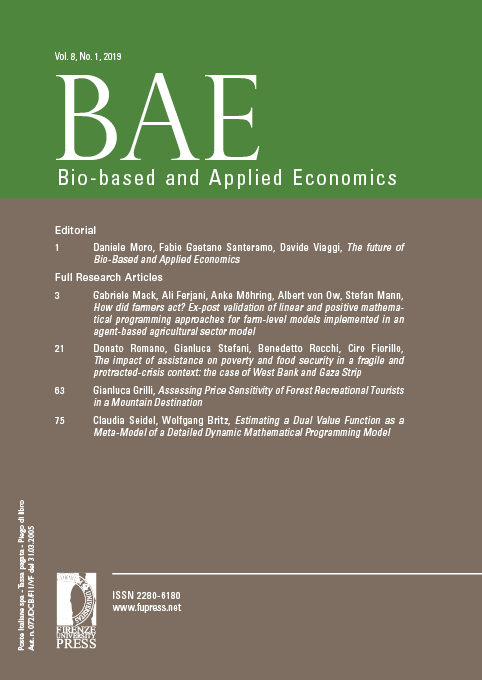The impact of assistance on poverty and food security in a fragile and protracted-crisis context: the case of West Bank and Gaza Strip
Published 2020-02-24
Keywords
- Poverty,
- food security,
- impact analysis,
- West Bank and Gaza Strip
How to Cite
Abstract
This paper assesses the impact of assistance on the wellbeing of Palestinian households. The impact evaluation analysis uses a difference-in-difference approach for the treatment of sample selection bias. The paper uses data from the 2013 and 2014 rounds of the Palestinian Socio-Economic and Food Security survey to estimate the impact of assistance to West Bank and Gaza Strip (WBGS) households on their poverty and food security status. Results suggest that both poverty and food insecurity would have been much higher for WBGS as a whole without assistance, further increasing in areas with lower levels of assistance. However, the average positive impact of assistance hides a lot of heterogeneity. In fact, while there is a clear positive impact of the intensity of assistance on poverty reduction, food consumption and diet diversity in the West Bank, Gaza Strip analysis shows mixed results. Results highlight how the international community cannot disengage from supporting Palestinian households without severely impacting their wellbeing.






